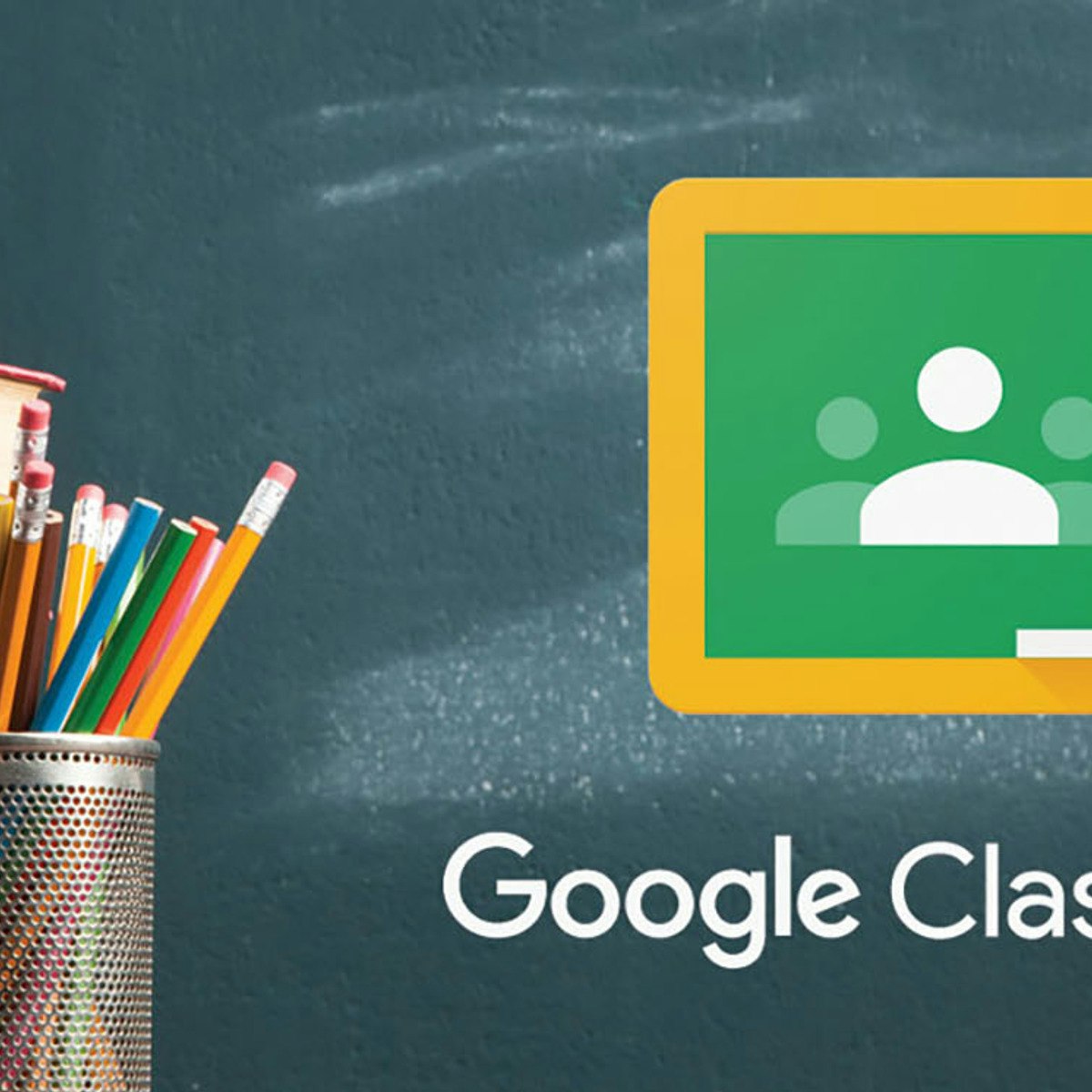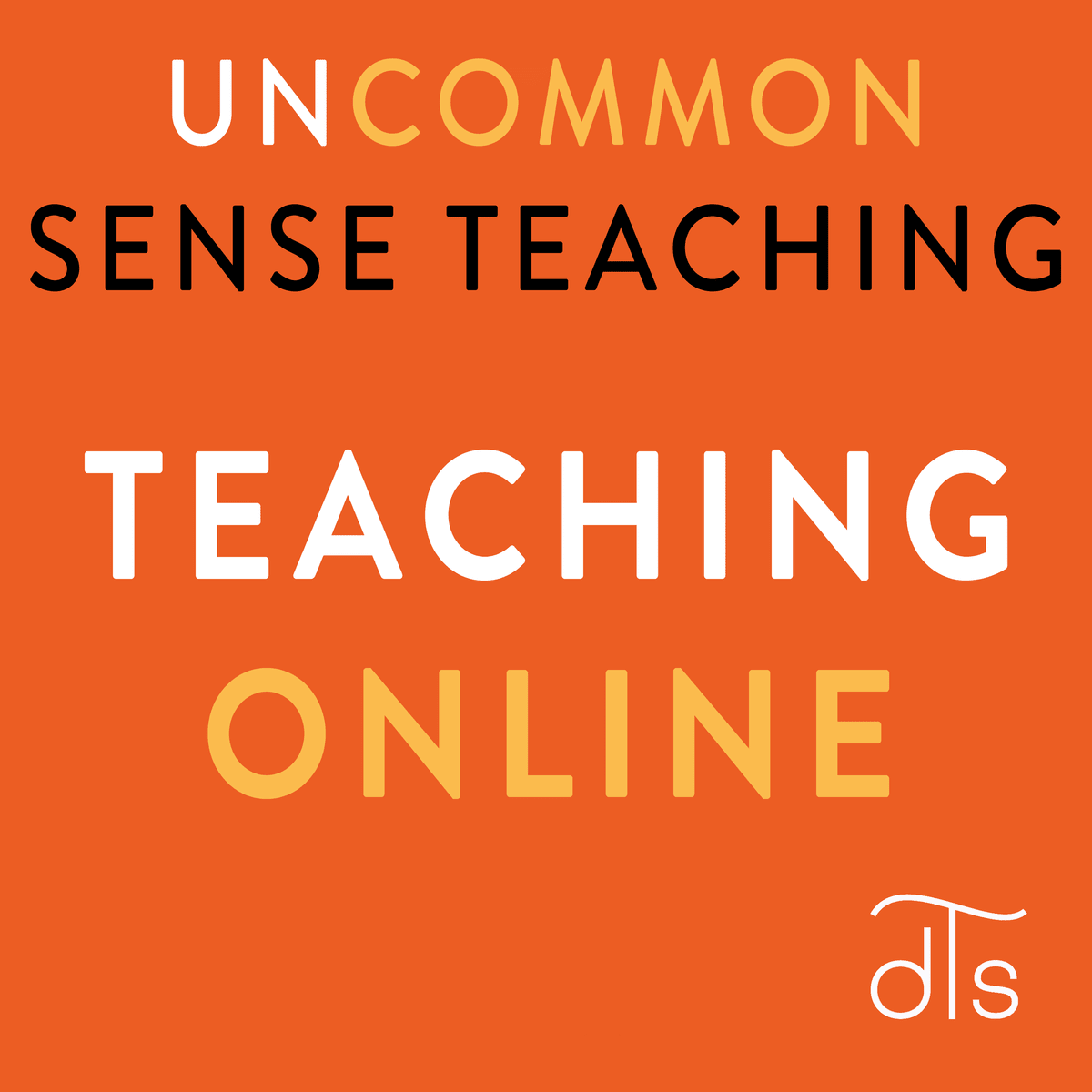Online Instructor
Becoming an Online Instructor: A Comprehensive Career Guide
An Online Instructor is an educator who designs, develops, and delivers learning experiences through digital platforms. Unlike traditional classroom settings, online instruction leverages technology to connect with learners across geographical boundaries, offering flexibility in time and place. This role encompasses teaching diverse subjects, from academic disciplines in universities to professional skills in corporate training or specialized knowledge on independent platforms.
Working as an Online Instructor can be deeply rewarding. You have the opportunity to share your expertise and passion with a global audience, shaping understanding and fostering skill development. The role often allows for significant autonomy in structuring courses and interacting with learners. Furthermore, the inherent flexibility of remote work appeals to many seeking better work-life integration or opportunities beyond their local area.
Understanding the Role of an Online Instructor
What Does an Online Instructor Do?
The core function of an Online Instructor is to facilitate learning in a virtual environment. This involves much more than simply uploading materials online. Instructors must thoughtfully design curricula tailored for digital consumption, often breaking complex topics into digestible modules. They select or create engaging content, which might include video lectures, interactive simulations, readings, and discussion prompts.
Managing the virtual classroom is another key aspect. This includes setting clear expectations, fostering a sense of community among learners, moderating discussions, and providing timely support. Online instructors adapt their teaching methods to suit asynchronous (learners participate at different times) and synchronous (real-time interaction) formats, using various tools to engage students effectively.
Assessment and feedback are critical responsibilities. Instructors design assignments and evaluations appropriate for the online setting, assessing learner progress and understanding. Providing constructive, personalized feedback is crucial for student growth, especially when face-to-face interaction is limited. This requires strong communication skills and a commitment to helping each learner succeed.
Essential Duties and Responsibilities
Key responsibilities often begin with curriculum design and development. This involves defining learning objectives, structuring course content logically, and selecting appropriate technologies and materials. Instructors must ensure their course design promotes active learning and aligns with the intended outcomes, whether for academic credit, professional development, or personal enrichment.
Delivering instruction is central. This might involve recording video lectures, hosting live webinars, facilitating online discussions, and responding to student inquiries. Effective delivery requires clarity, enthusiasm, and the ability to adapt communication styles for a digital medium. Managing the learning platform, organizing resources, and troubleshooting minor technical issues are also part of the daily workflow.
Beyond teaching, instructors focus on student engagement and support. They monitor participation, encourage interaction, and provide guidance to learners who may be struggling. Evaluating student work, providing meaningful feedback, and maintaining accurate records of progress are essential administrative tasks associated with the role.
Where Do Online Instructors Work?
Online instructors find opportunities across various sectors. Higher education institutions increasingly employ online faculty for degree programs and continuing education courses. K-12 schools also utilize online instructors, particularly for specialized subjects or remote learning initiatives. The demand is significant in the corporate world for employee training and professional development programs.
Furthermore, a growing number of instructors work for online learning platforms, either creating their own courses or teaching for established providers. Non-profit organizations and government agencies also hire online instructors for specific training needs. Some instructors operate independently as entrepreneurs, marketing their expertise directly to learners globally.
The subject matter taught online is vast, spanning nearly every field imaginable. From technical skills like Programming and Data Science to Arts & Culture, Languages, and Personal Development, the online format accommodates diverse educational content. This breadth creates opportunities for specialists in almost any domain.
For those interested in the practical aspects of teaching online, particularly languages, foundational courses can provide essential techniques.
Online vs. Traditional Teaching
While the fundamental goal of educating students remains the same, online instruction differs significantly from traditional face-to-face teaching. Classroom management translates to virtual environment management, requiring proficiency with Learning Management Systems (LMS) and communication tools instead of physical presence.
Engagement strategies must be adapted. Online instructors often rely more heavily on meticulously designed activities, interactive multimedia, and structured discussions to maintain learner interest without the immediacy of physical cues. Building rapport and a sense of community requires deliberate effort through online communication channels.
Assessment methods may also change. While traditional exams are possible online, instructors often emphasize project-based assessments, online quizzes, peer reviews, and participation in forums. Providing effective feedback digitally demands clarity and empathy. Finally, online instruction requires a higher degree of technological proficiency from both the instructor and, to some extent, the learner.
Adapting teaching methods for different circumstances, including online environments, is a key skill. The following course explores resilience in teaching.
Required Skills and Competencies
Technical Proficiency
A fundamental requirement for online instructors is comfort and competence with technology. Proficiency in using Learning Management Systems (LMS) like Canvas, Blackboard, Moodle, or Google Classroom is often essential. Instructors need to navigate these platforms to upload content, create assignments, manage grades, and communicate with students.
Creating engaging course materials frequently involves using multimedia tools. Skills in basic video recording and editing, screen capture software (like OBS Studio or Camtasia), and presentation software (PowerPoint, Google Slides, Prezi) are highly valuable. Familiarity with collaborative tools like discussion forums, wikis, and web conferencing platforms (Zoom, Microsoft Teams) is also crucial for facilitating interaction.
These books offer insights into using specific platforms like Canvas and general technological integration in teaching.
Basic troubleshooting skills are helpful, as instructors often serve as the first point of contact for students experiencing technical difficulties. Understanding digital accessibility standards (like WCAG) ensures course materials are usable by all learners, including those with disabilities.
Here are some courses focused on specific tools often used in online instruction.
Pedagogical Skills for Virtual Environments
Effective online teaching requires more than just technical skill; it demands strong pedagogical understanding adapted for the virtual space. Instructors must be adept at applying learning theories and instructional design principles specifically to online contexts. This includes creating activities that foster critical thinking, collaboration, and active engagement despite the physical distance.
Understanding how to structure content for online consumption is key. This often means breaking down information into smaller, manageable units (microlearning), using a variety of media formats, and providing clear navigation. Designing effective online discussions that encourage deep learning rather than superficial participation is another critical pedagogical skill.
Instructors need to be proficient in selecting and implementing appropriate assessment strategies for the online environment. This includes designing authentic assessments that measure real-world application of knowledge and skills, as well as using tools for formative feedback to guide student learning throughout the course.
These courses and books delve into instructional design principles and effective online teaching practices.
Communication and Adaptability
Clear, consistent, and empathetic communication is paramount in online instruction. Instructors must be skilled in written communication, as much interaction occurs through emails, announcements, discussion forums, and feedback on assignments. Tone and clarity are crucial to avoid misunderstandings and build a supportive learning environment.
Adaptability is essential. Online instructors must be prepared to adjust their teaching strategies based on student feedback, participation patterns, and emerging technological capabilities. They need to be flexible in responding to diverse learner needs, backgrounds, and varying levels of technical proficiency.
Managing communication effectively in asynchronous settings requires organization and responsiveness. Setting clear expectations for response times and maintaining a visible presence in the course help students feel connected and supported. Facilitating synchronous sessions effectively requires skills in managing virtual interactions, encouraging participation, and using platform features smoothly.
Assessment and Feedback Strategies
Designing meaningful assessments for the online environment is a core competency. This goes beyond traditional tests and quizzes to include project-based learning, portfolios, peer assessments, and interactive simulations. Assessments should align directly with learning objectives and provide opportunities for students to demonstrate their understanding in authentic ways.
Providing timely, constructive, and personalized feedback is crucial for student success online. Instructors need strategies for delivering feedback efficiently yet effectively, whether through written comments, audio/video feedback, or rubrics. Feedback should be specific, actionable, and aimed at fostering improvement.
Utilizing data from assessments and platform analytics can help instructors understand student progress and identify areas where learners might be struggling. This data-informed approach allows for targeted interventions and continuous improvement of the course design and teaching methods. Maintaining academic integrity in online assessments also requires careful planning and use of appropriate tools or strategies.
This book offers guidance on evidence-based teaching practices, applicable to assessment and feedback.
Career Progression for Online Instructors
Entry-Level Opportunities
Individuals entering the field often start as adjunct instructors at colleges or universities, teaching one or two online courses per semester. Corporate training departments might hire entry-level online facilitators or content developers to assist with creating and delivering internal training programs. Some begin by creating courses on independent platforms to build a portfolio and gain experience.
Another entry point is through roles supporting online education, such as instructional technology assistants or online learning support specialists. These positions provide valuable exposure to the tools and processes involved in online instruction. Assisting experienced instructors or contributing to course development projects can also be stepping stones.
These roles typically require subject matter expertise combined with foundational knowledge of online pedagogy and technology. Building a strong portfolio showcasing teaching philosophy, sample course materials, and positive student feedback is beneficial for securing these initial positions.
Gaining experience often involves creating materials. These courses cover essential skills like video and audio production.
Mid-Career Paths
With experience, online instructors can advance to more senior roles. This might include becoming a lead instructor, responsible for mentoring junior faculty or coordinating a specific online program. Positions like Instructional Coordinator involve overseeing curriculum development and ensuring instructional quality across multiple courses or departments.
Experienced instructors may specialize in Instructional Design, focusing solely on creating effective and engaging online learning experiences rather than direct teaching. Others might move into faculty development roles, training other instructors on best practices for online teaching and educational technology integration.
Mid-career professionals often develop expertise in specific areas, such as assessment design, accessibility, or using advanced learning technologies. Building a reputation through presentations at conferences, publications, or leadership within professional organizations can open doors to these more influential roles.
Senior Roles and Entrepreneurship
At senior levels, online instructors might transition into administrative leadership positions, such as Director of Online Learning, Assistant Dean for Digital Education, or Chief Learning Officer in a corporate setting. These roles involve strategic planning, budget management, and overseeing the institution's or company's entire online education portfolio.
Some highly experienced instructors pursue entrepreneurship, launching their own online course businesses, consulting firms specializing in e-learning, or developing educational technology products. This path offers maximum autonomy but requires strong business acumen alongside instructional expertise. Building a personal brand and network is crucial for success.
For those in academia, achieving tenure or full professor status while specializing in online pedagogy is another senior trajectory. Research and publication in the field of online learning and educational technology can lead to recognition as a thought leader. These senior paths often require advanced degrees and a significant track record of impactful work.
Starting an online business often involves platforms like YouTube. These courses offer insights.
Pivoting to Adjacent Fields
The skills developed as an Online Instructor are transferable to various related careers. Expertise in curriculum development, technology integration, and adult learning principles makes roles like Instructional Designer or Learning Experience (LX) Designer natural fits. These roles focus on the architecture of learning experiences, often without direct teaching responsibilities.
Strong communication and technical skills can lead to opportunities in educational technology sales, support, or product management. Understanding the needs of educators and learners from firsthand experience is highly valuable in these roles. Similarly, skills in project management and content creation can translate to roles in digital marketing or communications within educational institutions or EdTech companies.
Some instructors leverage their subject matter expertise combined with online teaching experience to become consultants, advising organizations on developing effective online training programs or digital learning strategies. Others might move into educational policy or research, focusing on the future of digital education.
Formal Education Pathways
Relevant Undergraduate Degrees
While there isn't one single required degree, several undergraduate fields provide a strong foundation. A Bachelor's degree in Education offers core pedagogical knowledge. Degrees in specific subject areas (e.g., English, History, Biology, Computer Science) provide the necessary content expertise for teaching that subject online.
Degrees in fields like Communications can be beneficial for developing strong writing and presentation skills, crucial for online interaction. Psychology degrees, particularly those focused on learning and cognition, offer insights into how students learn, which is valuable for designing effective instruction.
Increasingly, some universities offer undergraduate programs or specializations in Educational Technology or Instructional Design, providing early exposure to the specific tools and theories relevant to online teaching. Regardless of the major, gaining practical experience through internships, volunteer teaching, or creating online content during undergraduate studies is highly recommended.
This book provides strategies applicable to succeeding in any academic program, including online ones.
Graduate Programs and Specializations
For many positions, particularly in higher education, a Master's degree or Doctorate is required. Master's degrees in Education (M.Ed.), often with specializations in Curriculum and Instruction, Educational Technology, or Online Learning, are common pathways. A Master's degree in the specific subject area being taught is also frequently required or preferred.
Graduate programs specifically focused on Instructional Design and Technology (IDT) or Learning Design and Technology (LDT) equip professionals with advanced skills in creating effective online learning experiences. These programs delve deeper into learning theories, design models, multimedia development, and evaluation methods.
Doctoral programs (Ph.D. or Ed.D.) in related fields are typically pursued by those aiming for senior leadership roles in academia, research positions, or roles requiring deep expertise in educational theory and practice. These programs often involve significant research into aspects of online learning, pedagogy, or technology integration.
These books discuss leadership and design in educational settings, relevant for those pursuing advanced roles.
Certifications and Professional Development
Beyond formal degrees, various certifications can enhance an Online Instructor's credentials. Certifications in specific LMS platforms (like Canvas Certified Educator) or educational technology tools demonstrate technical proficiency. Organizations like Quality Matters (QM) offer certifications focused on standards for high-quality online course design.
Professional organizations related to education and technology (e.g., ISTE, AECT, EDUCAUSE) often provide certificates or microcredentials related to online teaching best practices, digital pedagogy, or instructional design. These can be valuable for demonstrating commitment to ongoing professional development and staying current with field trends.
Completing specialized online courses or bootcamps focused on aspects like online assessment, virtual classroom management, or accessible design can also bolster skills and resumes. Continuous learning is crucial in this rapidly evolving field, and platforms like OpenCourser offer access to a wide array of relevant courses.
Developing digital skills is an ongoing process. These courses focus on digital competencies and specific tools.
Online Course Development and Delivery
Designing Effective Virtual Curricula
Creating a successful online course starts with thoughtful design. This involves clearly defining learning outcomes – what students should know or be able to do by the end of the course. The curriculum should then be structured logically, often in modules, with activities and assessments directly aligned with these outcomes.
Good online course design considers the learner experience. Navigation should be intuitive, instructions clear, and expectations well-defined. Utilizing principles of Universal Design for Learning (UDL) helps ensure the course is accessible and engaging for learners with diverse needs and preferences. Incorporating opportunities for interaction – student-to-content, student-to-instructor, and student-to-student – is vital.
Selecting appropriate content and activities requires careful consideration of the online format. Simply uploading lecture notes is insufficient. Instructors should curate or create a mix of resources, including readings, videos, interactive elements, and collaborative tasks, to cater to different learning styles and maintain engagement.
These resources offer insights into designing courses and learning experiences.
Tools for Interactive Content Creation
Static content can quickly lead to disengagement online. Instructors leverage various tools to create interactive and dynamic learning materials. Authoring tools like Articulate 360 or Adobe Captivate allow for the creation of sophisticated interactive modules, simulations, and quizzes.
Simpler tools can also be highly effective. Platforms like H5P enable the creation of interactive videos, branching scenarios, and formative assessments that can be embedded directly into an LMS. Tools like Padlet or Miro facilitate collaborative brainstorming and idea sharing. Presentation software often includes features for adding polls, quizzes, and interactive elements.
Video and audio remain powerful mediums. Screen recording software (e.g., Screencast-O-Matic, Loom, OBS) is essential for creating tutorials or narrated presentations. Basic video editing tools (like Filmora or even mobile apps) allow instructors to polish recordings and add engaging elements. High-quality audio is crucial; courses on voice recording techniques can be beneficial.
These courses cover tools for creating visual content and ensuring good audio quality.
Strategies for Learner Engagement
Keeping learners engaged in an online environment requires deliberate strategies. Building a sense of community is key; this can be achieved through introductory activities, well-facilitated discussion forums, group projects, and instructor presence. Regular, personalized communication helps students feel connected and supported.
Variety in activities and content formats helps maintain interest. Mixing readings with videos, discussions with individual assignments, and synchronous sessions with asynchronous tasks caters to different preferences and prevents monotony. Incorporating elements of gamification, such as points, badges, or leaderboards, can also boost motivation for some learners.
Prompt and meaningful feedback is a powerful engagement tool. When students know their work is being reviewed thoughtfully and that their instructor is invested in their progress, they are more likely to remain engaged. Providing opportunities for learners to apply concepts to real-world scenarios or personal interests also enhances relevance and motivation.
This course focuses specifically on enhancing student engagement using a particular tool.
Adapting Assessments for Digital Formats
Translating traditional assessment methods to the online space requires adaptation. While online proctoring tools exist for timed exams, instructors often emphasize alternative assessments that measure higher-order thinking skills and are less susceptible to academic dishonesty.
Examples include authentic assessments like case studies, research projects, portfolios, presentations (recorded or live), and collaborative assignments. These tasks often require students to apply knowledge in realistic contexts. Rubrics are essential tools for clearly communicating expectations and providing consistent evaluation for these more complex assessments.
Formative assessments are crucial online for monitoring progress and providing timely feedback. Low-stakes quizzes, short reflective writing prompts, concept maps, and peer reviews can provide valuable insights into student understanding throughout the course, allowing instructors to adjust teaching as needed. Utilizing LMS quiz features or specialized assessment tools can automate grading for some formative tasks.
Learning how to learn online effectively is a prerequisite for students, and understanding these strategies helps instructors design better courses.
Global Opportunities and Remote Work Dynamics
Cross-Cultural Teaching Considerations
Teaching a global audience online requires cultural sensitivity and awareness. Learners may come from diverse backgrounds with different communication styles, educational norms, and perspectives. Instructors must strive to create an inclusive environment where all students feel respected and valued.
This involves carefully selecting course materials to ensure they are globally relevant and avoid cultural biases. Communication strategies should be clear and mindful of potential language barriers or differing interpretations. Being flexible and understanding regarding participation styles and approaches to learning is also important.
Awareness of different holidays, cultural practices, and potential access limitations in various regions is necessary. Providing multiple ways for students to demonstrate understanding can accommodate diverse learning preferences shaped by cultural backgrounds. Building intercultural competence is an ongoing process for effective global online instructors.
Time Zone Management Strategies
Managing interactions across multiple time zones is a practical challenge. When scheduling synchronous sessions (like live webinars or office hours), instructors need to offer options that accommodate learners in different parts of the world or primarily rely on asynchronous methods that allow participation at any time.
Clear communication about deadlines is crucial, specifying the time zone used (e.g., UTC, EST). Using scheduling tools that automatically convert times can be helpful for coordinating meetings. Designing group activities requires consideration of time differences to ensure equitable participation opportunities.
Instructors also need to manage their own workload across time zones, setting realistic expectations for response times to inquiries submitted outside their primary working hours. Utilizing features like scheduled announcements in the LMS can help disseminate information efficiently across different time zones.
Navigating International Contracts and Work
Working as an online instructor for international institutions or clients involves navigating different legal and financial systems. Contracts may vary significantly in terms of employment status (employee vs. independent contractor), intellectual property rights for course materials, and payment terms (currency, payment schedule).
Understanding tax implications is critical. Instructors may be liable for taxes in their home country and potentially in the country where the employing institution or client is based. Seeking professional advice regarding tax treaties and reporting requirements is often necessary. Payment methods and potential currency conversion fees should also be clarified upfront.
Awareness of different labor laws and academic standards in various countries is important. This includes understanding regulations related to data privacy (like GDPR in Europe), accessibility requirements, and academic integrity policies, which can differ internationally.
Working effectively from home or remotely requires specific strategies, regardless of location.
Regional Demand and Subject Variations
The demand for online instructors can vary by geographic region and subject area. Some regions may have a higher adoption rate of online learning in formal education or corporate training. Developing economies might see rapid growth in demand for foundational skills or English language instruction.
Subject matter demand also fluctuates based on industry trends and workforce needs. Fields like technology, data science, healthcare administration, and business often show consistently high demand for online instruction. However, opportunities exist across nearly all disciplines, particularly as more institutions embrace online and hybrid models.
Researching specific regional markets or industry sectors can help identify niche opportunities. Platforms specializing in particular subjects or catering to specific geographic audiences can also be avenues for finding work. Networking within international professional organizations related to a specific field can provide insights into global demand.
Industry Trends Impacting Online Instructors
AI Integration in Education
Artificial intelligence (AI) is increasingly influencing online education. AI-powered tools can assist with tasks like automating grading for certain types of assignments, providing personalized learning pathways based on student performance, and offering chatbot support for common queries. Adaptive learning systems use AI to adjust content difficulty in real-time.
While AI offers potential benefits for efficiency and personalization, it also raises questions for instructors. Understanding how to ethically and effectively integrate AI tools into teaching practice is becoming important. Instructors may need to shift their focus towards skills that AI cannot easily replicate, such as fostering critical thinking, creativity, and complex problem-solving.
Concerns exist around data privacy, algorithmic bias, and the potential for AI to de-humanize the learning experience. Instructors play a crucial role in ensuring technology serves pedagogical goals and enhances, rather than replaces, meaningful human interaction and guidance. Staying informed about AI developments through resources like those from World Economic Forum reports is becoming essential.
Microcredentials and Stackable Certifications
There is a growing trend towards microcredentials – shorter, focused certifications demonstrating specific skills or competencies – often offered online. These are seen as flexible alternatives or supplements to traditional degrees, allowing learners to acquire in-demand skills quickly. Online instructors are often involved in designing and teaching these programs.
The concept of "stackable" credentials, where learners can combine multiple microcredentials over time to potentially build towards a larger certificate or degree, is gaining traction. This requires instructors and institutions to think modularly about curriculum design. According to research supported by the Lumina Foundation, the number and variety of non-degree credentials have significantly increased.
This shift impacts instructors by potentially creating demand for more specialized, shorter-form courses. It also requires adapting teaching and assessment to focus clearly on defined competencies relevant to the workforce. Understanding industry needs and aligning course content accordingly becomes even more critical.
Changing Accreditation and Quality Standards
As online education matures, accreditation bodies and quality assurance organizations are refining standards specifically for online programs. Institutions and instructors must stay abreast of these evolving expectations regarding course design, faculty qualifications, student support services, and assessment integrity.
Organizations like Quality Matters (QM) and the Online Learning Consortium (OLC) provide frameworks and professional development focused on ensuring quality in online and blended learning environments. Adherence to such standards is often crucial for institutional reputation and program success.
These changing standards influence how online instructors design courses, interact with students, and document their practices. A focus on continuous improvement, data-driven decision-making, and adherence to evidence-based practices is increasingly expected in the field.
Exploring educational reforms and the broader context of digital scholarship can provide valuable perspective.
Data Privacy and Security Regulations
Handling student data requires strict adherence to privacy regulations like FERPA (in the US) and GDPR (in Europe). Online instructors must understand their responsibilities regarding the collection, storage, and use of student information, including grades, personal details, and online activity data.
The use of various third-party educational technology tools adds complexity, as instructors need to be aware of the data privacy policies of these tools and ensure they comply with institutional and legal requirements. Secure practices for communication, file sharing, and managing login credentials are essential.
Educating students about responsible digital citizenship and their own data privacy rights is also part of the instructor's role. As technology evolves, staying informed about emerging privacy and security challenges, such as those related to AI-driven tools or biometric proctoring, is crucial.
Challenges in Online Instruction
Combating Screen Fatigue and Isolation
Both instructors and learners can experience screen fatigue from prolonged hours spent in front of computers. Designing courses with varied activities, including offline tasks, and encouraging breaks can help mitigate this. Instructors also need to manage their own screen time to avoid burnout.
The potential for isolation is another challenge in online learning. Building a strong sense of community through interactive discussions, group work, and personalized communication can help learners feel connected. Instructors, too, can feel isolated; participating in faculty communities of practice or professional networks provides valuable peer support.
Finding a healthy balance between online engagement and offline activities is important for well-being. Promoting strategies for time management and digital wellness can benefit both instructors and students navigating the demands of the online environment.
This book addresses productivity for professors, relevant to managing workload and avoiding burnout.
Intellectual Property and Content Use
Navigating intellectual property (IP) rights is a complex aspect of online instruction. Instructors need to understand copyright law and fair use principles when selecting or creating course materials. Using copyrighted materials without permission can lead to legal issues for both the instructor and the institution.
Clarity regarding ownership of course materials developed by the instructor is also important. Institutional policies vary; sometimes the institution retains IP rights, while other times the instructor does, or there's a shared ownership model. Understanding the terms of employment or contract regarding IP is essential.
Protecting one's own created content from unauthorized use or distribution online is another concern. While technological measures exist, fostering a culture of academic integrity and respect for intellectual property among learners is a key preventative strategy.
Managing Diverse Learner Needs and Capabilities
Online courses attract learners with diverse backgrounds, learning preferences, technical skills, and access to technology. Instructors must design courses that are accessible and equitable for all students. This includes providing materials in multiple formats, using accessible technologies, and offering flexibility where possible.
Addressing varying levels of digital literacy can be challenging. Providing clear tutorials for required technologies and offering technical support resources is helpful. Instructors need patience and adaptability when assisting students with technical hurdles.
Accommodating learners with disabilities requires adherence to accessibility standards (e.g., providing captions for videos, ensuring keyboard navigability, using accessible document formats). Proactively designing for accessibility benefits all learners and creates a more inclusive environment.
Understanding distance education principles helps in addressing diverse needs.
Balancing Scalability and Personalization
Online education offers the potential for scalability, reaching large numbers of learners simultaneously. However, maintaining personalized interaction and meaningful feedback becomes more challenging as class sizes grow. Instructors must find strategies to balance efficiency with individual student support.
Utilizing technology effectively can help. Well-designed rubrics streamline grading, automated feedback tools can handle common errors, and discussion forum structures can facilitate peer-to-peer support. However, technology cannot fully replace personalized instructor feedback and guidance, especially for complex tasks.
Strategies like dividing large classes into smaller discussion groups, using teaching assistants effectively, and prioritizing feedback on key assignments can help maintain a sense of connection. Ultimately, finding the right balance depends on the course objectives, learner population, and available resources.
Frequently Asked Questions (FAQs)
What qualifications are typically required to become an Online Instructor?
Qualifications vary significantly by sector. For higher education, a Master's degree or Ph.D. in the subject area is often required, along with demonstrated teaching ability (online experience preferred). Corporate training roles may prioritize industry experience and certifications over advanced degrees. K-12 online teaching usually requires state teaching licensure. Subject matter expertise is always essential, coupled with growing expectations for proficiency in online pedagogy and educational technology.
Can I become an Online Instructor without a traditional teaching license?
Yes, in many contexts. Teaching licenses are primarily required for K-12 public schools. For higher education, corporate training, and independent online course platforms, a teaching license is generally not mandatory. However, institutions will look for subject matter expertise (often validated by degrees or experience) and evidence of teaching effectiveness, which might include specific training in online instruction or instructional design.
How does compensation compare to in-person teaching roles?
Compensation structures vary widely. Adjunct online instructors in higher education are often paid per course, and rates can sometimes be lower than for comparable on-campus courses, though this is changing. Full-time online faculty salaries may be comparable to traditional faculty, but this depends heavily on the institution. Corporate online trainers' salaries align with general corporate training compensation. Independent instructors' income depends entirely on their ability to market and sell their courses. Data from the U.S. Bureau of Labor Statistics for Postsecondary Teachers can provide a general baseline, but specific online roles may differ.
What basic technical setup do I need?
A reliable computer with a modern operating system and consistent high-speed internet access are fundamental. A good quality webcam and microphone (external microphones often provide better audio than built-in ones) are essential for recording videos or participating in live sessions. Proficiency with standard office software, web browsers, and the specific Learning Management System (LMS) used by the employer is also necessary.
Are there union protections or standardized contracts for Online Instructors?
Union representation exists for some online instructors, particularly full-time faculty at unionized colleges and universities, and K-12 teachers. However, many online instructors, especially adjuncts and those working for private companies or platforms, are hired as independent contractors or non-union employees. Contract terms can vary significantly regarding pay, intellectual property, course load, and benefits. Carefully reviewing contract details is crucial.
How stable is this career path with advancements in AI?
While AI is changing aspects of education, the role of the human instructor remains vital. AI can automate some tasks, but it cannot easily replicate the empathy, mentorship, complex feedback, and community-building aspects that effective instructors provide. The career is likely to evolve, requiring instructors to adapt and leverage AI tools effectively, rather than being entirely replaced. Focusing on higher-order thinking skills, creativity, and personalized support will likely increase job security.
Embarking on a career as an Online Instructor offers a dynamic path for educators passionate about leveraging technology to share knowledge and foster learning globally. It requires a blend of subject matter expertise, pedagogical skill adapted for virtual environments, technical proficiency, and strong communication abilities. While challenges exist, the opportunity to impact learners flexibly and innovate within a rapidly evolving field makes it a compelling choice for many. Continuous learning and adaptation are key to thriving in this rewarding profession.























